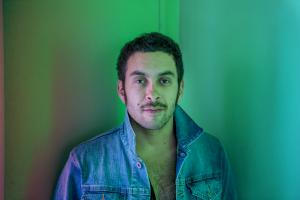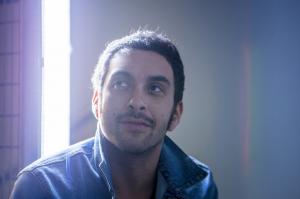Eduardo FUKUSHIMA
Dancer
Eduardo received a grant to participate in the Camping project organised by the Centre National de la Danse.
What is your artistic background ?
My first contact with dance was through my mother, she took dance classes as a hobby, but my father didn’t allow me to take ballet classes, so I joined Artistic Gymnastic, where I trained for 10 years, from 6 to 16 years old. I started studying dance when I was 19, taking several kinds of dance, like classical ballet, Brazilian dance, Indian classical dance, Capoeira Angola, contemporary dance and Tai Chi etc.. The same year, I created my first solo piece. I danced with many different choreographers too and I graduated from the Catholic University of Sao Paulo PUC in Communication of the Body Arts, a great course that has a focus on creation with an avant-garde viewpoint. On that course, I started to make my own work as a choreographer. I also studied in Taiwan for a year with Cloud Gate Dance Theatre, through a prize from the Rolex Mentor and Protégé Arts Initiative, so I could focus on Chinese body practices. Today I have three solos that I have presented around the world, Between Restraints(2008), How to Overcome the Great Tiredness?(2010) and Crooked Man(2013-14). Now in 2017, I’m creating a new solo. I like to work in many positions in the dance field, as a choreographer who performs his own ideas, I like to be a performer for other choreographers, I like to direct other dancers and I also work as a teacher.
How do you see your profession today ?
In Brazil, it is very hard to be a dancer, even if we are a country where dance is very popular. Artists who are not big in the Brazilian media are still marginalized, ‘normal’ people don’t realize the importance of the arts and culture for a country. We (artists and government) were constructing better conditions for work at the beginning of this century, we were doing quite well but since the new political regime, in 2016, we’ve gone back to the old times. And in Sao Paulo especially (my hometown, the fifth biggest city in the world), nowadays we suffer from the ignorance of our leaders, who ignore the need for a multidisciplinary approach to dance. They are destroying everything. It’s a shame. We dancers, choreographers, producers, curators, thinkers, teachers, etc… are now fighting together against this situation. What I like from dance is that we carry our work in our bones, our bodies, our whole existence, that is nice! Our poetry in our body through movement.
How do you see yourself in 5 years ? In 10 years ?
In 5 years, I hope I can do more to build respect for our work in my country. In 10 years, I hope I will still be dancing, in better conditions, and see more social equality in Brazil and see more dignity for all artists who are working so hard today. I hope to have children too!
This interview was conducted in 2017
Photo credit: Antonin Amy-Menichetti


